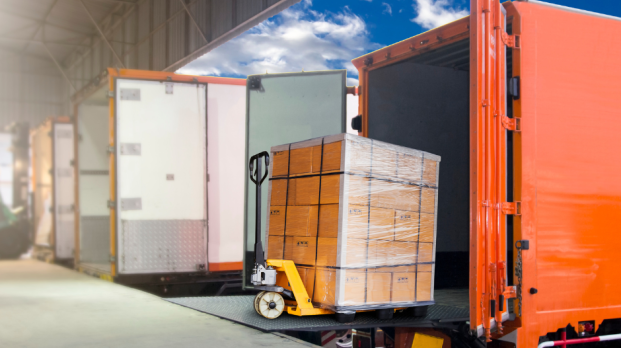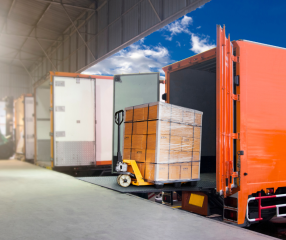
Three years have passed since the United Kingdom officially left the European Union in January 2020, an event that sent ripples through the world of logistics and supply chain management. As we reflect on this significant split, it’s evident that the effects of BREXIT have been profound and far-reaching, with supply chains evolving in response to the new geopolitical landscape. Businesses, both in Europe and across the world, have adapted by splintering their supply chains to support both the United Kingdom and Europe as a whole.
“The complexities of moving cargo was the main issue as BREXIT changes moved into place,” says Phillip Sutherland-Moore, Managing Director – United Kingdom, EFL Global. “Logistics suppliers in the United Kingdom were suddenly inundated with new enquiries, from existing and new clients, who all of a sudden needed assistance to comply with the new protocols of importing and exporting goods to and from the UK and Europe.”
The BREXIT Shockwave
When the United Kingdom formally made its exit from the European Union, a once seamless trade relationship was severed. There were immediate disruptions in the flow of goods between the two entities, such as new tariffs, customs and compliance measures, and border control operations. As a result, businesses were faced with a challenge: did they realign their supply chains to support this new reality?
According to AmCham EU, although the Trade and Cooperation Agreement between the European Union and the United Kingdom created a framework for business going forward, there are still additional costs incurred and “trade friction for companies working across Europe.” When looking at the numbers, Eurostat noted the following: “Between January 2020 and December 2021, EU imports from the United Kingdom decreased by 16.4 % while imports from other non-EU countries increased by 30.1 %. EU exports to the United Kingdom decreased by 2.1 % while exports to other non-EU countries increased by 6.1 %.”
“The time frame needed to move cargo between the United Kingdom and Europe did increase as the complexities of completing paperwork, arranging import and export clearances per consignment, and the need to handle import duties came into play,” says Sutherland-Moore. “Currently, with most economies across the globe experiencing down turns, it would be difficult to fully comprehend the true impact BREXIT has had on the UK economy. The COVID-19 boom must also be recognized as a factor in potentially falsely softening the blow during the same period.”
Splintered Supply Chains for Businesses
Prior to BREXIT, a single supply chain and its operations could serve both the United Kingdom and the broader European market. Now, however, separate strategies must be created for each.
For businesses located in the United Kingdom, locally placed Warehousing & Distribution centers became essential, enabling faster deliveries, minimizing customs delays, and overall prioritizing nearshoring. This also allowed businesses to maintain competitive pricing and meet customer expectations, despite BREXIT’s complications for trade. For businesses in the European region and beyond, a separate set of logistics arrangements were required for any cargo heading to – or out of – the United Kingdom.
Regulatory Compliance and Increased Costs
Navigating the post-BREXIT regulatory landscape has been a considerable challenge, with brands adopting to new trade rules, product certifications, and compliance requirements. This necessitated investments in legal and regulatory expertise and systems that could handle the complexities of cross-border transactions.
Additionally, adapting to this splintered supply chain model came at a cost. Establishing and maintaining distribution centers, warehousing, and new transportation routes in the United Kingdom and European Union has increased operating expenses. This put pressure on pricing strategies, with inevitable additional cost to the final customer.
How Businesses Manage Logistics Today
Despite the challenges that came along with BREXIT and the years that followed, businesses quickly learned how to adjust their strategies to support the United Kingdom and the EU as two separate entities while still fostering growth in their supply chains.
According to Maersk, there are multiple initiatives businesses put in place to mitigate the impact of BREXIT regulations, including bonded warehouses to minimize risks, the use of freeports, clarity on Customs Clearance processes, and an emphasis on client visibility regarding fluctuating costs and compliance changes. Digital visibility tools can also support supply chains and more quickly identify problems as they arise to minimize delays.
How EFL Global Navigates a Post-BREXIT Trade Environment
As a global organization, EFL Global’s successful management of the BREXIT transition can be attributed to its expansive presence, unwavering flexibility, and dedicated team of Customs Brokers and experts who stay ahead of regulatory changes. With operations spanning multiple countries and a deep understanding of global trade, the logistics provider is well-positioned to adapt to new trade dynamics across the world.
“The EU market currently represents 10 percent of our EFL Global – United Kingdom’s total net profit annually, and the early days of BREXIT posed a big challenge for our team,” says Sutherland-Moore. “Today, we are proud to say that our UK team has been able to grow through the challenges, and now offers mature, flexible, and innovative solutions for all of our clients’ logistical needs across Europe.”
As we reflect on BREXIT, it’s clear that supply chains have been profoundly reshaped to adapt to the new geopolitical landscape. In times of change, it’s important to have a logistics provider who is prepared with the solutions you need to succeed. For more information about our EFL Global – United Kingdom solutions, contact our team at www.efl.global/get-quote.


